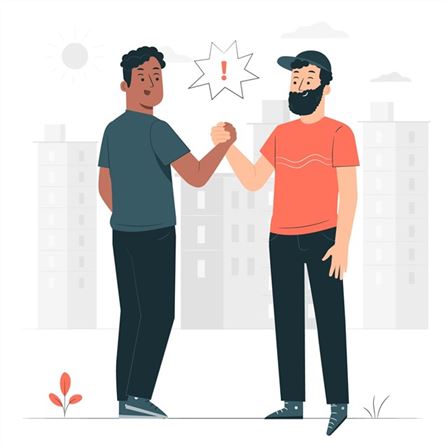Are You Low in Vitamin D? Here’s Your Solution!
What causes low vitamin D? It’s summer and we all want to be outside, soaking up the sun.
But what happens when you’re stuck inside your house or don’t have enough natural sunlight? Your body needs vitamin D to keep it functioning properly! The human body makes vitamin D when exposed to the sun. Drug stores carry supplements, but they may not be enough for those living in areas with less sunlight.
You can always get a vitamin D supplement! These will make sure that you’re getting enough of this essential nutrient, no matter where you live or how much time the kids spend playing indoors on their iPad all day long.
The human body makes vitamin D when exposed to the sun. The body absorbs this vitamin through the skin, so it is important to avoid being too close to people who are wearing sunscreen. In more northern areas with less sunlight, adding a supplement may be necessary.
Do You Need Vitamin D?
Your body needs vitamin D to help absorb calcium. Your body cannot make vitamin D (it must come from the sun or certain foods), so you must get it through your diet or supplements.
If your body does not have enough vitamin D, your bones may not grow naturally and strong as you age. This condition is known as rickets in children and osteomalacia in adults. Other health problems related to low vitamin D are frequent bone fractures, muscle weakness, and general poor health that can make getting around difficult.
Your body may have a hard time absorbing calcium if your stomach does not produce enough acid to break down the fortified food you eat into smaller particles that are easier for your body to use for nutrition.
How Do You Know if You’re Getting Enough Vitamin D?
If you are healthy and eat a balanced diet, you probably do not need to take a vitamin D supplement. If you are regularly going outside, especially during the middle of the day, your skin will make enough vitamin D for you. The best way to know if your body is getting enough vitamin D is to have your blood checked.
If you live in a cold climate or work indoors and want to make sure that you’re getting enough vitamin D without going outside in the middle of winter, ask your doctor about taking a supplement.
5 Signs You Have Low Vitamin D
What are the signs that you have low vitamin D? Are you feeling tired, moody, and having muscle aches? If yes, you may have low vitamin D levels in your body. There are many symptoms of low vitamin D and we list the most common ones here:
1.Weakness
The first symptom of low vitamin D is weakness. If you feel very weak and get tired easily, even after doing simple things like walking or climbing stairs, you have low vitamin D levels. This is because vitamin D deficiency weakens your muscles and bones, making it difficult for them to work properly.
2.Muscle Cramps
Muscle cramps are caused due to vitamin D deficiency. Vitamin D requirements for the muscles to function normally and if the body is not getting enough active vitamin D, it will cause muscle aches and cramps.
3.Problems Sleeping
It is easy to notice that you are having trouble sleeping after suffering from low levels of vitamin D for a long period of time, but sometimes it may be harder to notice because you may not be aware that you have been suffering from low levels of the vitamin.
4.Stiff Muscles
Stiffness in your muscles can be caused by low levels of vitamin D because they are weak and will start to feel stiff as a result. For example, the first time you try to lift a heavy object you have not lifted before, your muscles will feel stiff.
5.Depression
This may be one of the lesser-known symptoms of low vitamin D levels but depression is in fact one of the main indicators that you do not have enough of this vitamin in your body. This may be one symptom that people do not realize because they may feel sad or depressed without realizing that it is caused due to their low levels of this vitamin.
What Causes Vitamin D Deficiency in Children and Adults?
Children and adults with low vitamin D levels may experience fatigue, weight gain, muscle weakness, depression, rickets, headaches, and muscle/bone pain.
The two main factors that cause low vitamin D is:
- Sun-Exposure (usually between the months of October and April when the sun is less bright)
- Obesity (those with higher body fat are more likely to have lower vitamin D levels)
Children and adults who live in areas far from the equator or have lower exposure to ultra-violet light can benefit from oral supplementation to increase their levels. However, if you decide to take a supplement please consult your physician first.
How Vitamin D Prevents Osteoporosis
Vitamin D helps prevent osteoporosis, a disease that leads to bone breakage and increased health risks of vitamin D fractures.
Osteoporosis is the major problem resulting from low levels of vitamin D.
What Causes Osteoporosis?
People who live at altitudes above 40 degrees north or south have a higher chance of suffering from osteoporosis because the sun’s ultraviolet rays aren’t as powerful in these regions.
Research has shown that people with low levels of vitamin D intake in their blood tend to develop osteoporosis. In addition, post-menopausal women are at a higher risk as they age.
Unfortunately, osteoporosis is not reversible. But it can be prevented.
Winters in northern latitudes and cloudy, rainy days throughout the year make it tougher for people to get enough vitamin D from natural sunlight, which is the predominant source of vitamin D.
People who have darker skin pigments also miss out on natural sunlight – their bodies aren’t able to synthesize adequate amounts of vitamin D from sunlight.
Vitamin D supplements can prevent osteoporosis and help those who are vitamin D deficient in this essential nutrient to maintain strong bones. But always consult with your doctor for screening for vitamin D before taking any supplement.
Get Your Vitamin D Level Tested
Getting your vitamin D levels tested is very easy. A simple blood test can detect vitamin D inadequacy and provide you with an accurate result. Here is how you can order your blood test
The Importance of Vitamin D In Your Body
Vitamin D is a very important vitamin that is essential for your body to function correctly. There are many benefits of Vitamin D has when it comes to your health. It plays a huge role in helping you maintain healthy bones and even helps fight against some serious diseases such as cancer and osteoporosis.
One of the most important benefits of getting your vitamin D levels checked is the prevention of certain cancers, specifically colon cancer. A recent observational study found that women who had lower vitamin D levels were almost twice as likely to develop colorectal cancer compared with those women who had normal levels.
Best Healthy Food Sources for Low Levels of Vitamin D
1. Cod Liver Oil – The richest prevalence of vitamin D is cod liver oil. It has a ratio of 40 IU’s (international units) per tablespoon. [recommended daily amount – RDA] It is also high in vitamin A, which can help boost immunity and reduce your risk for disease.
Adults are recommended to take about one teaspoon of the oil each day. The taste can be a little overpowering at first, so it may be best to start with a smaller dose until your body gets used to it.
2. Egg Yolk – One whole egg has about 35 IU’s of vitamin D. The yolk is the best part, but it contains more vitamin D than the egg white.
3. Sardines – Sardines are a rich form of vitamin D, with about 120 IU’s in each tin (without any other fish).
4. Low Fat Milk – One cup of milk gives you about 100 IU’s of vitamin D (if you don’t want to bother with mixing it in a glass). It is also high in dietary calcium levels and other minerals, which are good for your health.
5. Lamb Liver– One cup of lamb liver (cut into strips) gives you about 10,000 IU’s of vitamin D.
6. Mushrooms – You can use fresh or powdered mushrooms to boost your vitamin D levels. Fresh mushrooms have a much higher amount of vitamin D than dried mushrooms.
The single serving is about 6 grams (1/2 oz). The dried equivalent is 4 grams.
7. Wild Alaskan Salmon – The highest source of Vitamin D in the diet is probably wild Alaskan salmon (which unfortunately is not easy to find). One serving (4 ounces) provides 100 IU’s a day, which makes it one of the highest sources in the world.
Vitamin D Deficiency is Serious if You’re Not Getting Enough Sunlight
Vitamin D is important for healthy bones and muscles, strong muscle growth, and cardiovascular health. It has been linked to a lower risk of multiple sclerosis, diabetes, heart disease, and cancer plus it helps boost immunity by fighting off infections.
Conclusions About Vitamin D Deficiency
Low levels of vitamin D may be caused by lack of sun exposure, low intake of vitamin D in your diet, and other factors. Vitamin D deficiency is a serious health condition that can affect your immune system and metabolism.
Vitamin D is produced in the skin after being exposed to sunlight. Since it is not made in the body, it must be consumed through food and supplements or produced through exposure to sunlight.
If you are not getting enough vitamin D through your diet or supplements, try eating more foods like cod liver oil. Lastly, ask your health care provider if you need a prescription for a supplement, and then make sure to take the recommended dosage daily.
FAQs for What Causes Low Vitamin D
What Causes Vitamin D Deficiency in Older Adults?
Older adults who do not get adequate amounts of vitamin D from their diets or from spending time outdoors during daylight hours are at increased risk of developing osteoporosis.
Vitamin D (from outside sources) helps boost your immune system so you are more resistant to infections and diseases, plus it helps you get your muscles stronger to ward off the effects of aging.
The sun’s ultraviolet rays also play a huge role in getting your vitamin D levels up. Not only do these rays help with vitamin D production, but they also help prevent skin cancers and skin damage as well. So make sure you are getting enough sun exposure throughout the year.
They are also at greater risk for falls and fractures due to bone loss and muscle weakness, which is why it is important for them to get vitamin D from a supplement.
Should I Worry About Low Vitamin D?
Yes, because there are many consequences associated with having too little vitamin D in our bodies. Some of these include:
– Weakness – your body is more susceptible to all kinds of infections and other illnesses
– Poor bone health and muscle pain – you are more prone to developing chronic pain in your bones, joints, and muscles
– Depression – low vitamin D levels have been linked with serious depression and seasonal affective disorder (SAD), as well as all kinds of mood disorders that have depressive symptoms.
Since many otherwise healthy people do not get enough of this vitamin it is a good idea to get your levels checked on a regular basis. This way you will know what supplements are needed to increase the amount of vitamin D in your body.
How Can I Get More Vitamin D?
There are several ways to get more vitamin D into your body. First, eat plenty of fish such as salmon, tuna, sardines, mackerel, herring, trout, halibut, and catfish. They contain high concentrations of omega 3 fatty acids, which are great for boosting your brain function and memory. Omega 3 fatty acids are found mainly in cold water marine life.
Next, add some eggs to your breakfast routine. Eggs provide protein and healthy fats that will give you energy while helping build strong bones.
Lastly, drink milk products fortified with vitamin D. Milk has calcium and vitamin D, both necessary nutrients for building strong bones. If you choose skimmed milk over whole milk, you’ll still receive most of the health benefits of dairy without any extra fat calories.
If you are lactose intolerant, try almond milk instead. It contains just about half the sugar content of cow’s milk. Almond milk is rich in antioxidants and vitamins A, B2, E, K, magnesium, phosphorus, potassium, zinc, copper, manganese, selenium, and iron.
If none of these options work for you, then consider taking a vitamin D3 supplement. There are different types available depending upon whether you need an oral pill form or if you prefer liquid drops.
How Can I Raise My Vitamin D Levels Quickly?
One easy solution would be to take a daily multivitamin/mineral supplement containing 400 IU per day of vitamin D. However, if you find yourself struggling to raise your vitamin D health status levels quickly, here are two simple steps you can follow to boost your intake within one week:
1. Take 1,000 mg of cod liver oil every morning before eating anything else. Cod liver oil provides lots of vitamin D along with other healthful ingredients like EPA & DHA.
2. Add 10 micrograms of vitamin D3 to each glass of orange juice. Oranges naturally contain small amounts of vitamin D. But adding 10 mcg of vitamin D3 to your OJ gives you twice the dose of vitamin D from oranges alone.
How Long Does It Take To Correct a Vitamin D Deficiency?
The best way to determine if you have a deficiency is by having blood drawn at your health care professional’s office. Blood tests measure the level of 25 hydroxyvitamin D, also known as calcidiol. When your levels fall below 30 ng/ml, you should start supplementation immediately. Once your levels reach 50 ng/ml, you can stop supplementation.
However, there are certain conditions that require special attention.
Relationship between vitamin D and infections
Source: (dovepress.com)
What to Know About Vitamin D and COVID-19
Source: (webmd.com)
[wps_products product_id=”1638219808803″ html_template=”product.php”]





